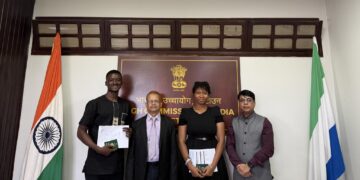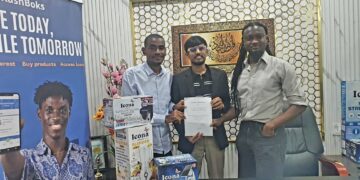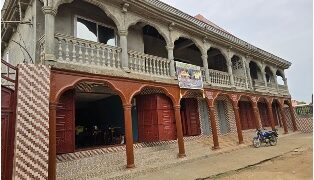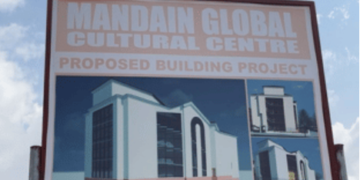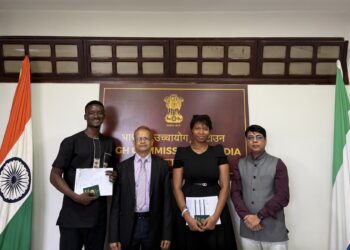The Ministry of Fisheries and Marine Resources, with support from the World Bank and Embassy of Iceland in Sierra Leone, has organized a two-day retreat with the objective of developing a strategic vision and roadmap for the development of the fisheries sector in Sierra Leone.
The program, which was held at the MOZZA Beach Resort, York Village, Peninsular, Western Rural Area District, from 23rd–24th October 2024, focused on enhancing the productivity and sustainability of fisheries, thereby boosting economic growth and ensuring food security, capacity building, and technical support to improve the management and utilization of fisheries resources.
She said her ministry considers the initiative an important reform activity and a priority step to facilitate the development of a strategic action plan that can result in an important national fishing project that can be funded by the World Bank and Iceland.
Dilating on the challenges facing the sector, Mrs. Dugba pointed out that experience has shown that illegal fishing practice in the artisanal fishing sector is more destructive to the country’s fishing industry.
In an effort to address this, she intimated that her ministry is implementing seasonal closure for the industrial fishing sector in the month of April every year, adding that similar measures for the artisan fishing sector will be implemented in February 2025.
This precautionary management approach, she furthered, will lead to the rebuilding of the country’s declining fish stock.
[10:09 AM, 10/30/2024] Max Konneh: She highlighted key areas that need support, including capacity-building programs for community management associations, manning marine protected areas, and initiatives and infrastructure that promote value addition.
The Minister used the occasion to call on development partners both local and international to compliment her ministry’s efforts in actualizing the sector’s strategic vision and roadmap for sustainable management and development of the country’s fisheries and marine resources.
Head of Mission, Embassy of Iceland, Asdis Bjarnadottirr, said the partnership between her county and Sierra Leone started in 2018 and extended to enhancing livelihoods in fishing communities by increasing access to basic services such as water and sanitation, among others.
She spoke about the invaluable role a well-managed fisheries sector plays in promoting socio-economic development of a country and looked forward to a strategic vision and roadmap that would enable Sierra Leone’s fisheries sector to realize its potential.
Representatives from the World Bank, Lia Sieghart and Marcelo, who delivered their statements online, underscored the importance of the program and thanked the organizers in Sierra Leone for the initiative, which they said would enhance the mobilization of necessary resources for the development of the fisheries sector.
The experts also emphasized the need to promote responsible fishing practices and address issues relating to climate change, adaptation, and community resilience while pledging the bank’s continued support.
Acting Director of Fisheries and Marine Resources, Sheku Sei, who also acknowledged the importance of the event, said it came as a result of the current Minister of Fisheries quest for a strategic vision and roadmap that would attract sustainable funding for the development of the sector.
The initiative, he added, would also address key management measures, including the Quota Management System and seasonal closure of the country’s territorial waters, among others, to promote the government’s ambition and vision for a viable and prosperous sector.
Statements and presentations of papers on various topics were also made by Fisheries Experts, including Technical Staff from the Ministry of Fisheries, followed by a case study by representatives from Iceland, one of the World’s Leaders in Fisheries Management.
The two-day interactive program, chaired by an Environmental Specialist from the World Bank, Dr. Ralph Bona, addressed a number of critical issues bordering on revenue, generation data collection and stock evaluation, livelihood and sustainability dimensions, as well as private sector involvement.
By MFMR Media Unit


